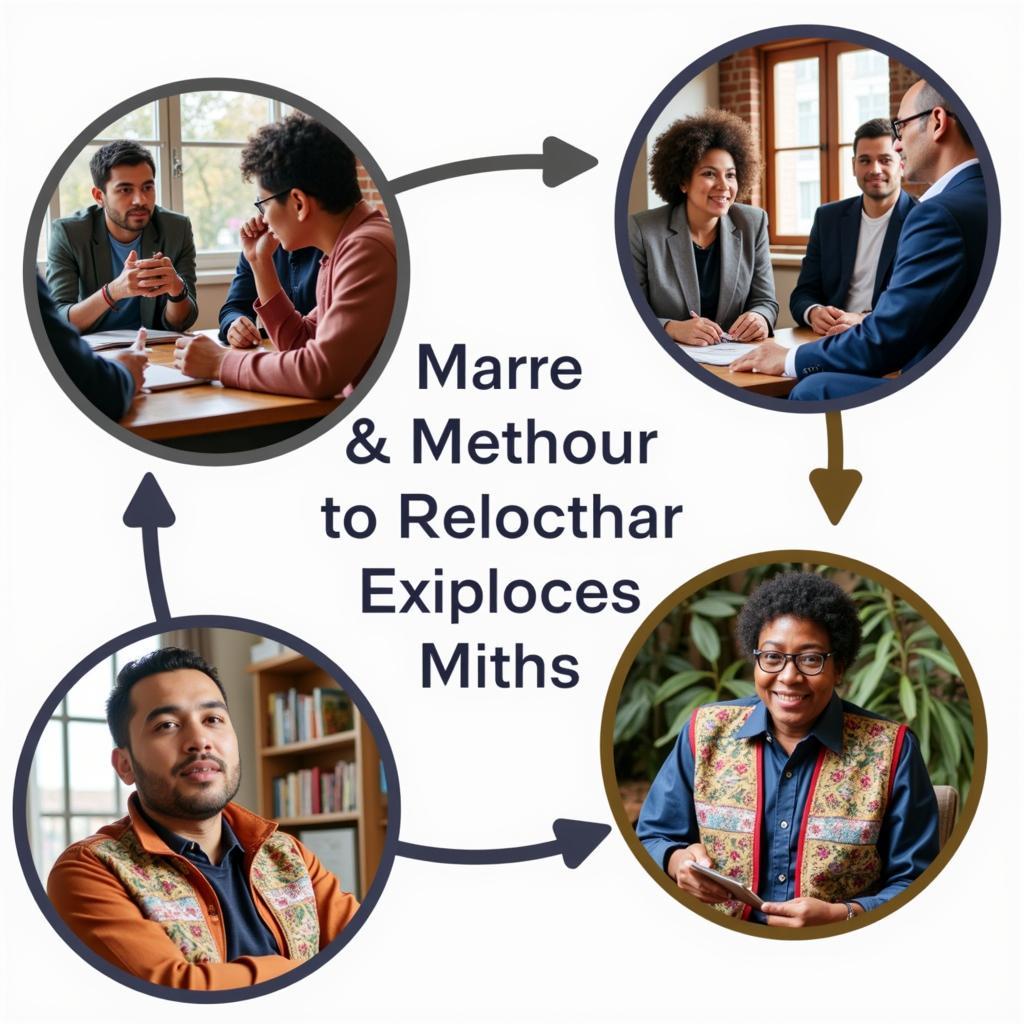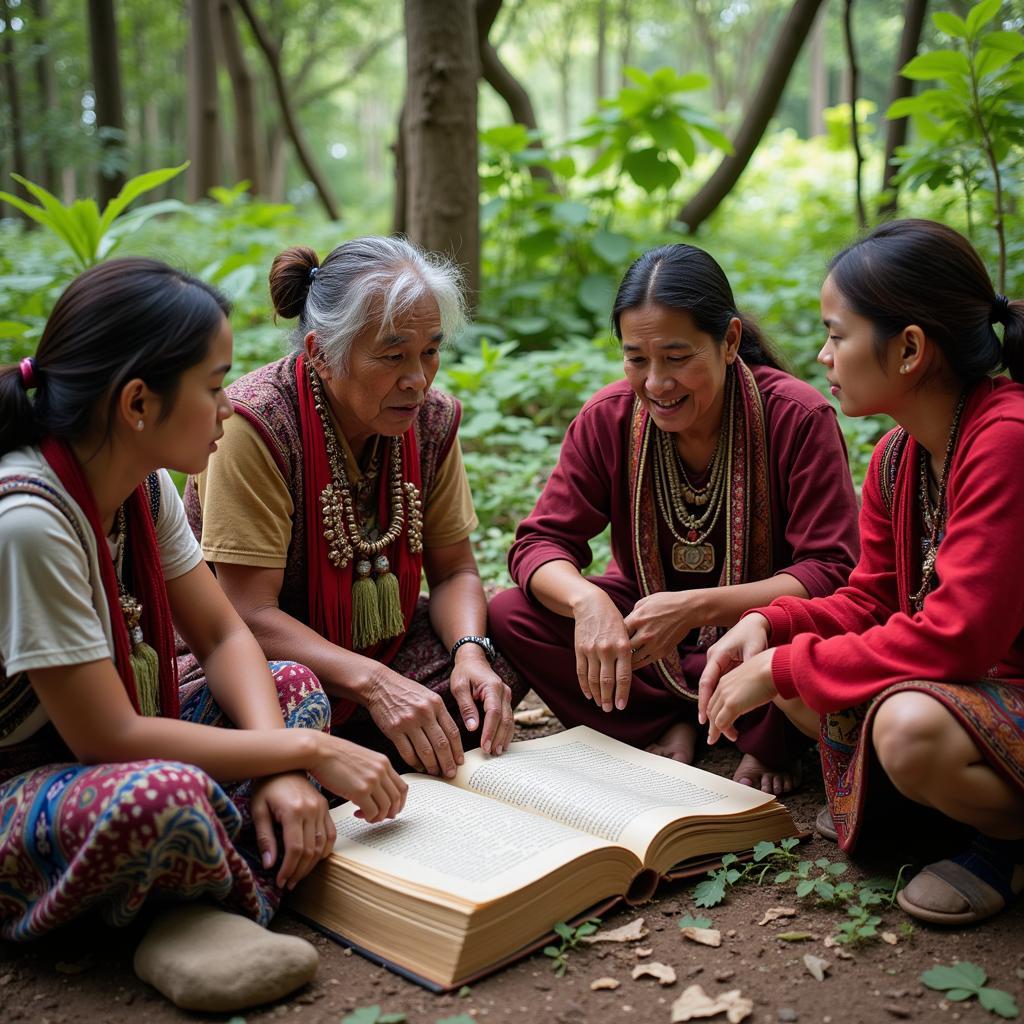Decolonising Research Methodology is gaining increasing traction in academic circles and beyond. It calls for a critical examination of the underlying assumptions, power dynamics, and ethical implications inherent in traditional research practices. This movement aims to dismantle the lingering effects of colonialism on how knowledge is produced, validated, and disseminated.
What Does Decolonising Research Methodology Entail?
Decolonising research methodology isn’t merely about diversifying research participants or including non-Western perspectives. It’s a more profound shift in the very foundations of knowledge creation. It involves acknowledging the inherent biases embedded in Western research paradigms and actively seeking alternative approaches that prioritize indigenous knowledge systems, local experiences, and community-based methodologies.
Challenging Western-centric Research Practices
Western research methodologies often prioritize objectivity, quantitative data, and standardized procedures. While these methods have their place, decolonising research recognizes that they can be exclusionary and perpetuate colonial power structures. For instance, relying solely on quantitative data can overlook the rich tapestry of qualitative experiences and narratives that shape understanding.
 Challenging Western-Centric Research Practices: A visual representation of diverse research methods, including interviews, storytelling, and community-based participatory research.
Challenging Western-Centric Research Practices: A visual representation of diverse research methods, including interviews, storytelling, and community-based participatory research.
One crucial aspect of decolonising research is recognizing the importance of language. Research conducted in the colonizer’s language can perpetuate power imbalances and limit the ability of indigenous communities to fully express their knowledge and experiences.
Embracing Indigenous Knowledge Systems
Indigenous knowledge systems offer a wealth of insights and perspectives often overlooked by traditional research. These systems are deeply rooted in local cultures, histories, and ecological understandings. Incorporating indigenous knowledge systems into research methodologies not only enriches the research process but also empowers communities to reclaim their narratives and contribute to knowledge creation on their own terms.
 Embracing Indigenous Knowledge Systems: A visual depiction of indigenous knowledge keepers sharing their wisdom with younger generations.
Embracing Indigenous Knowledge Systems: A visual depiction of indigenous knowledge keepers sharing their wisdom with younger generations.
“Decolonizing research is not about rejecting all Western methodologies, but about critically evaluating their applicability and incorporating diverse ways of knowing,” states Dr. Anya Sharma, a leading researcher in indigenous studies.
Implementing Decolonised Research in Practice
Decolonising research methodology requires a commitment to reflexivity, ethical engagement, and community participation. Researchers must critically examine their own positionality and biases, ensuring that the research process is respectful and benefits the communities involved.
Some practical steps towards decolonising research include:
- Building meaningful partnerships with indigenous communities.
- Prioritizing community-based participatory research methods.
- Ensuring informed consent and ethical data collection practices.
- Recognizing and valuing diverse forms of knowledge.
- Disseminating research findings in accessible formats that benefit the community.
 Implementing Decolonised Research: A visual depiction of researchers collaborating with a local community, engaging in participatory research methods.
Implementing Decolonised Research: A visual depiction of researchers collaborating with a local community, engaging in participatory research methods.
“True decolonisation requires a shift in power dynamics, ensuring that research serves the interests of the community, not just the researcher,” adds Dr. Ben Okafor, an expert in postcolonial studies.
Conclusion
Decolonising research methodology is a vital step towards creating a more just and equitable knowledge landscape. By embracing diverse perspectives, prioritizing ethical engagement, and challenging traditional power structures, we can foster research that truly benefits all.
FAQs
- What is the difference between decolonising research and multicultural research?
- How can I ensure my research is ethically decolonised?
- What are some examples of indigenous research methodologies?
- What are the challenges of decolonising research in Western institutions?
- How can I incorporate decolonised approaches into my own research?
- What are the benefits of decolonising research methodology?
- What resources are available to learn more about decolonising research?
Common scenarios and questions
Researchers often grapple with the practicalities of implementing decolonised methodologies. Questions frequently arise regarding community engagement, ethical considerations, and the integration of indigenous knowledge systems.
Further Exploration
Explore other articles on our website related to ethical research practices, indigenous knowledge, and community-based research methodologies.
Contact Us
For assistance, please contact us at Phone Number: 0904826292, Email: [email protected], or visit our office at No. 31, Alley 142/7, P. Phú Viên, Bồ Đề, Long Biên, Hà Nội, Việt Nam. We have a 24/7 customer support team.